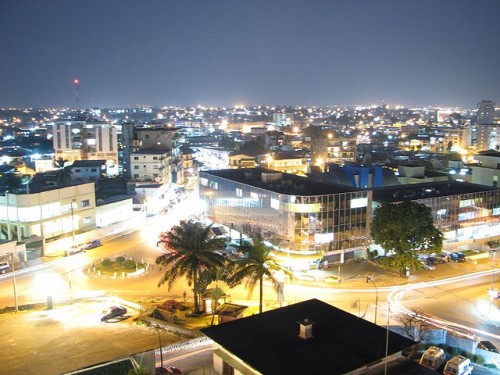City Profile: Libreville, Gabon
This is the sixth post in a series that intends to examine the ICT environment in metropolitan areas of Africa that receive relatively little publicity and lack ICT framework. These cities are often overshadowed by Cape Town, Johannesburg, Cairo, Nairobi, Accra, and Lagos but still have a bright future – albeit with a few additional hurdles to clear.
Gabon, located in West Africa, has only recently begun efforts to modernize its government. Former President Omar Bongo remained in charge of the nation from 1967 until his death in 2009. During this time, Bongo appeared more interested in profiting from his nation’s oil reserves rather than promoting privatization and technical advancement. In fact, the French government’s support arguably prevented Gabon from facing collapse. In the past 15 months, not a single visitor has come to this site from the city of Libreville, let alone all of Gabon. The government in Gabon has not been conducive for Internet growth, and the Francophone culture also poses its own challenges.
A look at the most recent population figures for Libreville suggest a relatively small city (not in the top 50 of Africa by population) that represents much of the nation’s interests:
- 578,000 (2004 estimate)
- Approximately half of Gabon’s 1.5 million residents live in the Libreville metro area
An in-depth search of the Internet turns up an extremely limited number of ICT endeavors and reports from the past few years. Out of the limited public information available on the Internet, here are some important points of information to know about Libreville’s ICT progress:
- infoDev’s “SURVEY OF ICT AND EDUCATION IN AFRICA: Gabon Country Report” from June 2007 states that Gabon has no plans to incorporate ICT with education. Furthermore, the president is essentially in charge of development and is advised by a computer technology expert who reports to the national information society, as well as a Central African organization. Telecoms services have been regulated since 2000. VSAT covers rural areas. 210 cyber cafes and 25,000 computers serve the nation. African Institute for Computer Technologies (IAI), based in Libreville, has trained a large portion of the computer executives and technicians of francophone Africa. Additionally, various collaborations exist between Gabonese and French universities.
- President Ali Bongo’s website (written in French) expresses a commitment to reducing connectivity costs and providing widespread access to the Internet (http://www.presidentalibongo.com/les-actions/infrastructures)
- Libreville will be one of 19 access points along the ACE cable system, expected to be operational by early 2012 (http://en.wikipedia.org/wiki/ACE_%28cable_system%29)
- Bharti Airtel will invest $100mm in Gabon over the next three years and promises wireless broadband and m-commerce (http://economictimes.indiatimes.com/articleshow/6107421.cms)
- Libreville is currently a landing station along the 340 Gbit/s SAT-3/SAFE cable.
- There is 6.4% Internet penetration in Gabon, but with only 550% growth over ten years, the nation ranks poorly among African nations (http://www.internetworldstats.com/stats1.htm)
- In 2009, Internet access suspiciously disappeared in the wake of President Bongo’s death (http://tempsreel.nouvelobs.com/actualite/monde/20090609.OBS9862/l-acces-telephonique-et-a-internet-tres-perturbe-au-gabon.html)
- WiMAX services were available to thousands as early as April 2007 (http://www.itweb.co.za/index.php?option=com_content&view=article&id=6659&catid=44:all-africa-news)
- An ICT center, partially funded by the International Association of Francophone Mayors, served 80 youth for free every day back in 2001. The center also provided training for officials (http://www.afrik.com/article2851.html)
- Finally, it appears that Gabon’s powers-that-be had Internet skills as far back as 2004. Bizarrely enough, former President Omar Bongo’s people reportedly used the Internet to lure Miss Peru to his palace in 2004! (Source)
Conclusion:
Current president Ali Bongo (Omar Bongo’s son) has announced a new vision for the modernization of Gabon, called “Gabon Emergent.” The U.S. Department of State explains:
This program contains three pillars: Green Gabon, Service Gabon, and Industrial Gabon. The goals of Gabon Emergent are to diversify the economy so that Gabon becomes less reliant on petroleum, to eliminate corruption, and to modernize the workforce. Under this program, exports of raw timber have been banned, a government-wide census was held, the work day has been changed to eliminate a long midday break, and a national oil company was created.”
We can only hope that a national ICT policy emerges as part of this long-term plan. Gabon’s historically corrupt government has a host of challenges that are perhaps more important that telecommunications. However, President Bongo’s 2016 ICT vision surely is a sign of positive changes to come. The arrival of the ACE cable in 2012 will also be beneficial to providing greater access at lower cost. However, worrisome is the lack of ICT training programs and integration of computers with education. Other African cities with low levels of Internet access often have universities with ICT plans and advanced infrastructure in place. Libreville, however, seems to lack such innovation at the university level. Fortunately, Gabon has ties with France and other Francophone nations – something that should prove beneficial in providing ICT training.













 Twitter
Twitter Facebook
Facebook Pinterest
Pinterest